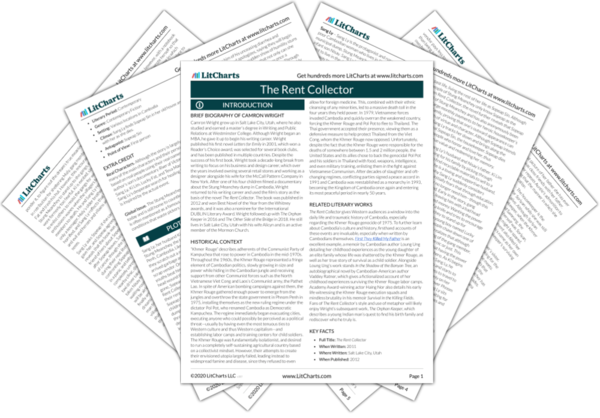Although the practical purpose of the knife is a tool and a weapon, it functions as a minor symbol for power. Ki’s beating makes him feel weak and powerless, and the weapon’s presence suddenly gives him a sense of power and capability. This will tie in later to Sang Ly and Ki’s changing perception of heroism. The fact that Ki chose to buy this sense of power for himself rather than food for his family suggests that his own feeling of powerlessness preoccupies him from other concerns. Personal safety, then, is paramount over even basic necessities like food in Stung Meanchey. Sang Ly’s decision to launch a crazy plan rather than wait around for Grandfather’s suggests that, even before Sopeap begins to teach her, Sang Ly senses that taking action is the most important step in fostering hope.
